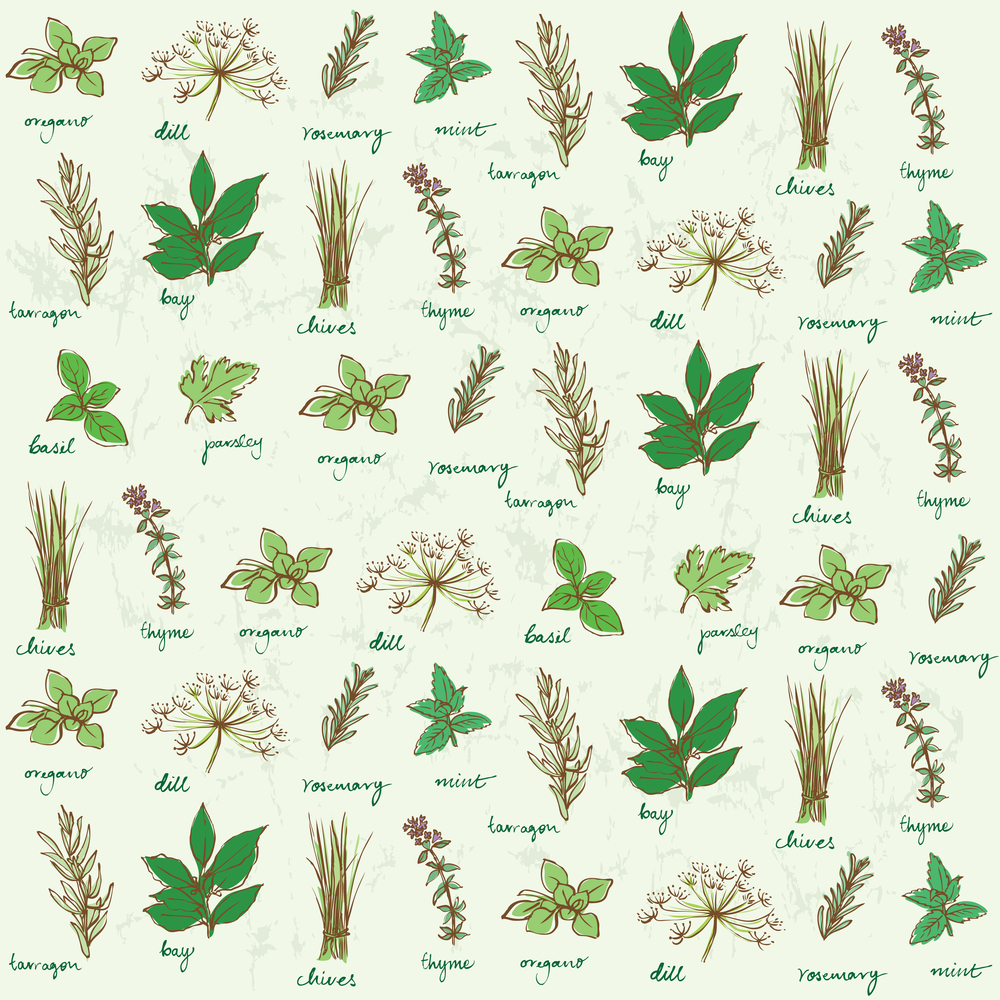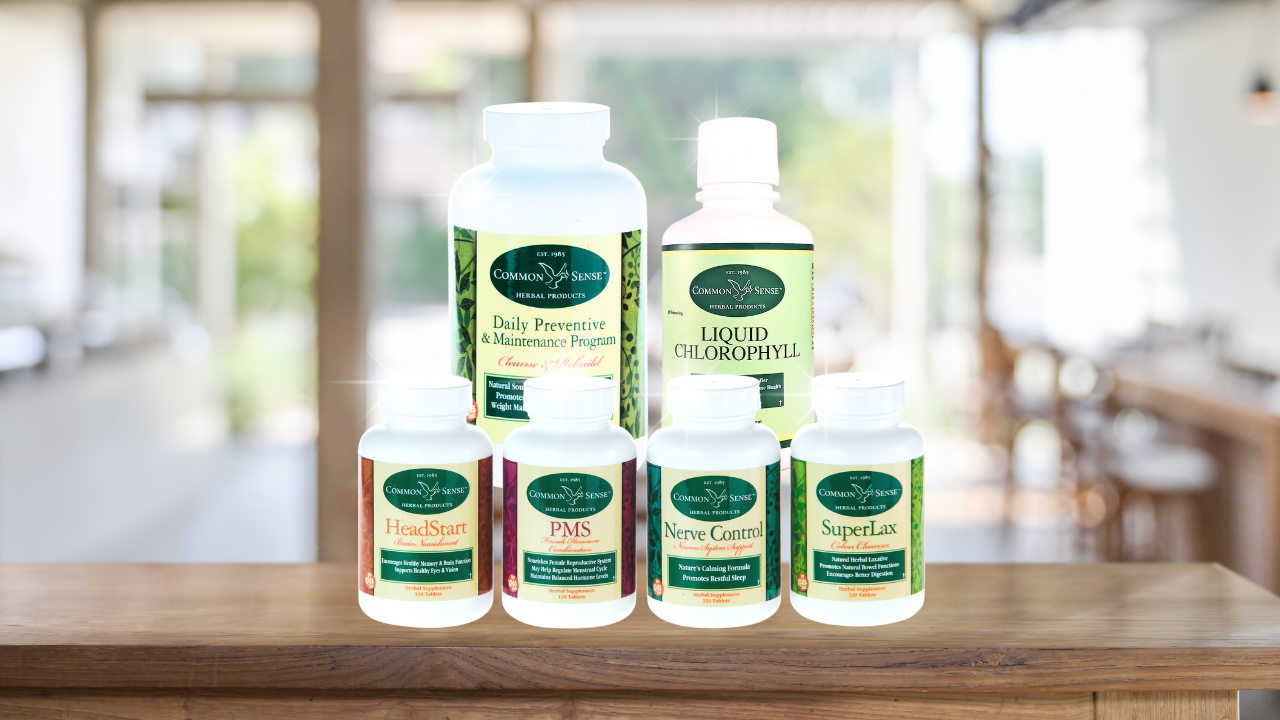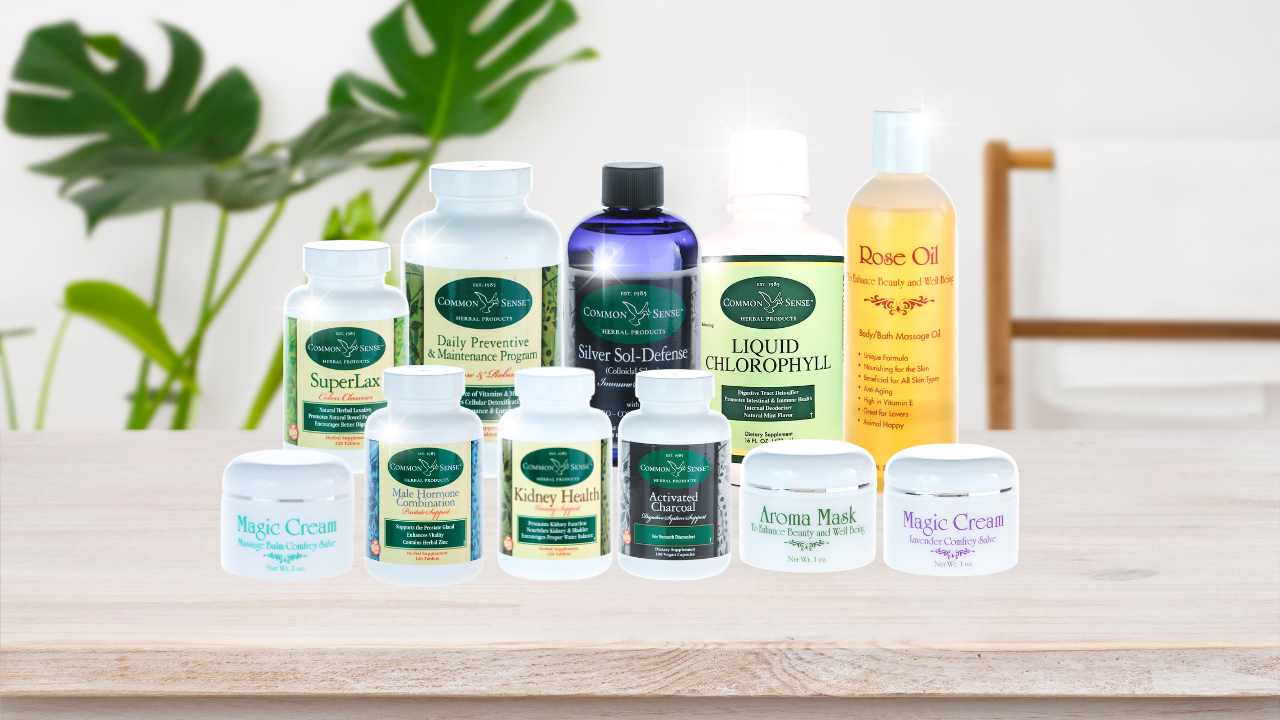
Have you run out of ideas for healthy cooking and/or eating? We recommend rummaging through your kitchen, unearthing your herbs, and using them to add new flavor to tried and true dishes. As an added bonus, many herbs offer surprising health benefits; all you need to do is incorporate them to take advantage.
9 Herbs In Your Kitchen Cabinet and Their Benefits
1. Basil
From vegan pizza to salsa, basil is a universal favorite in the kitchen. But you'd be remiss in thinking this tasty herb only elevates dishes. The truth is that it can boost your health in a number of ways. Here, we narrow basil's benefits to just five, but this list is far from all-inclusive.
Protective Properties
With water-soluble flavonoids, this herb offers strong protection for white blood cells - marking it an antioxidant much like popularly-touted berries. When white blood cells are healthy, the immune system functions properly. Basil also guards against free radical damage to maintain cellular and DNA integrity.
Thanks to its composition of essential oils, basil further safeguards against inflammation. This is recognized as a widespread problem responsible for almost every chronic disease. But basil helps tamp down inflammation to keep the body healthy.
Natural Fighter
In addition to protecting the body, basil is known help stave off:
- Cancer
- Antibiotic-resistant bacteria
- Stress-related issues
2. Parsley
Often used as a garnish, parsley deserves much more attention than we commonly give it. For starters, it may protect against breast cancer. Specifically, apigenin is a substance that occurs naturally within parsley and may suppress the growth of breast cancer cells.
But that's not all. With a rich combination of antioxidants, parsley can fight inflammation to not only help prevent disease but also alleviate joint pain associated with arthritis. High in vitamins K and C, it can maintain bone strength and stimulate collagen growth for a smoother, more youthful complexion.
3. Thyme
Here's another herb packed with antioxidants, and for that reason, may help deter against the effects of aging. It can also protect the body from harmful bacteria and, when brewed in a hot cup of tea, alleviate a cough and scratchy throat.
Given its use in tea, this next benefit may not come as a surprise: it can relax the neurological system to reduce feelings of anxiety. It is therefore a recommended remedy anytime you need a calming moment. And, if you're having a hard time meeting your daily nutritional needs, thyme can help; it contains vitamins A and C, iron, fiber, copper, and manganese.
4. Sage
Historically used for spiritual benefits, sage is another herb that can be added to tea or popular dishes. Its medicinal properties may especially help people with digestive problems as it helps stop diarrhea. Sage has also been shown to improve attention and cognitive abilities. Finally, it is a rich source of vitamins K and A and antioxidants to help prevent free radical damage.
For women, sage may relieve some menopausal symptoms. Its compounds are believed to mimic estrogen inside the body; when linked to certain brain receptors, women may experience fewer hot flashes, less sweating, and improved memory.
Helpful Tip: We included Sage in our herbal formula HPC-12.
5. Rosemary
Rosemary is commonly used to infuse stews with a warm, earthy depth. But it's not all about flavor with this herb. It can boost focus and alertness, improve mood, and relieve stress. Rich in anti-inflammatory compounds and antioxidants, it also improves blood circulation. Additional benefits include the following:
- Promotes immune system function
- Soothes heartburn and gas
- Protects skin cells from sun damage
Tip: We included Rosemary in our herbal formula HPC-12.
6. Oregano
Here is an unlikely statistic: one gram of oregano is 42 times more potent in antioxidant delivery than an apple. Adding it to your diet can help manage diabetes, protect against free radicals, and strengthen bones. It can also improve metabolism to oxygenate cells. This, in turn, boosts energy.
Interestingly, oregano contains high levels of fiber. A steady intake may therefore improve digestion. On average, adults are encouraged to daily eat 15 grams of fiber, although most of us fall short of this. Adding it to olive oil is easy and can create delicious marinades and dressings for meats and salads.
7. Mint
Like basil, the many benefits of mint cannot all be listed here. So we'll highlight a few of our favorites. When used in tea, mint can improve digestion and soothe a sour stomach. As an anti-inflammatory, it can help with asthma and relieve congestion.
For this same reason, it's also helpful in relieving cold symptoms. Improved memory, relief from nausea, and potentially aiding in weight loss help make mint a wise choice when looking for new flavor enhancements.
8. Dill
Some of the nutrients found in dill include:
- Vitamins A and C
- Folate
- Fiber
- Iron
- Calcium
- Manganese
As a rich source of vitamins and minerals, dill may help lower cholesterol and stabilize blood sugar levels, thereby improving heart health and reducing your chances of diabetes. It can also improve the symptoms of urinary tract infections, neuropathy, and gastrointestinal disorders. Finally, we recommend dill for its ability to maintain strong bones and healthy cellular functions.
9. Garlic
Although technically a vegetable, many regard garlic as a medicinal herb. We've included it here today as a bonus; garlic is easy to cook with, adds a highly flavorful component to many dishes, and is loaded with health benefits.
At the top of this list, garlic lowers cholesterol and triglycerides. This means lowered blood pressure and overall improved heart health. Garlic - rich in phytochemical content - also fights cancer and slows its progression. It reduces inflammation, prevents infection, and can even brighten your complexion. In short, garlic is one of the healthiest medicinal herbs you can enjoy.
Helpful Tip: We included Garlic in our herbal formulas HPC-12, Cardio Help and Pancreas Reg..
Herbs are not intended to sit unused. They are nature's way of improving food, safeguarding our health, and alleviating troublesome symptoms. With a few easy steps, you can easily incorporate them into everyday cooking. For more information about the health benefits of herbs, and how you can use them most effectively, visit Common Sense™ Products today.







